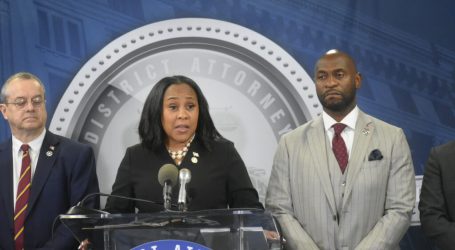New chapter in Georgia GOP lawmakers’ quest to restrict access to public school library books

A Cumming Republican state senator is hoping to protect kids from harmful materials in their school libraries. Opponents say it’s overreach and potentially harmful. Getty Images.
School librarians could be under more scrutiny from parents and the state under a pair of bills by Cumming Republican state Sen. Greg Dolezal.
Intent to distribute
Senate Bill 154, which is scheduled to get a committee hearing Wednesday, removes an exemption for school libraries from state code outlawing the distribution of harmful material to minors, which some school librarians said could put them at risk of arrest for doing their jobs.
Dolezal said under current law, kids can still get their hands on materials in the school library that would be considered harmful to minors under state law if they got it anywhere else.
“They potentially would have access to something in the library legally that they would not legally have access to in the classroom that they would not legally have access to on the school bus that they would not legally have access to in a friend’s home,” he said.
Rhonda Thomas, founder and president of Atlanta-based Truth in Education, a nonprofit seeking to expose anti-Christian trends in schools, said children these days are inundated with pornography, much of it available on school shelves.
“If you go online, you’re going to find that our schools are falling behind in reading, math, science, but our children are definitely going to know how to masturbate,” she testified to the Senate Education and Youth Subcommittee.
Librarians and educators characterized such allegations as complete fiction.
“As a veteran educator, I’ve just not seen that happen,” said Erin Baker, advocacy coordinator with the Georgia Library Media Association. “As a literacy expert, as a person who has taught research for many, many years, I have not seen children be able to access pornographic material from any of our online databases and I’ve never seen that in any libraries in the county where I work or as a board member on Georgia Library Media Association, this is just not something that we see.”
Georgia ACLU First Amendment policy advocate Sarah Hunt-Blackwell said librarians cannot be expected to have read every book they lend out.
“The sheer mass of books and other library resources makes it nearly impossible for librarians to know the contents of everything in the library, and as such, it is dangerous and irreparably life-altering for librarians to go to jail behind book content that they might not even be aware of,” she said.
Dolezal said a violation of the bill would require intent, not mere negligence.
Parental Notification
Senate Bill 365 would require local boards of education to offer parents the option to receive email notifications every time their child checks out material from the school library. It passed the Senate Education and Youth Committee on a party line vote Tuesday and could be headed to the full Senate.
Dolezal said SB 365 is a simple opt-in measure to help parents keep tabs on what their children are learning, but librarians and free speech advocates expressed concerns.
Nan Brown, coordinator of the Georgia Library Media Association’s advocacy team, said parents can already access a list of materials their children have checked out by logging in with their student ID number and password.
Georgia First Amendment Foundation legislative co-chair Nora Benavidez said the bill leaves too much up to interpretation.
“The language of ‘harmful to minors’ is open in many ways for interpretation,” she said. “Whatever one views as harmful is based on who that is, who is in power, who the governing bodies are at any moment.”
Dolezal said the bill intentionally does not provide a definition for harmful to minors but relies on the Miller Test, a three-pronged test used by the U.S. Supreme Court to determine whether speech is obscene.
The Miller Test asks whether “the average person applying contemporary community standards would find the work, taken as a whole, appeals to the prurient interest;” “whether the work depicts or describes, in a patently offensive way, sexual conduct specifically defined by the applicable state law” and “whether the work, taken as a whole, lacks serious literary, artistic, political or scientific value.”
SUPPORT NEWS YOU TRUST.
The post New chapter in Georgia GOP lawmakers’ quest to restrict access to public school library books appeared first on Georgia Recorder.





